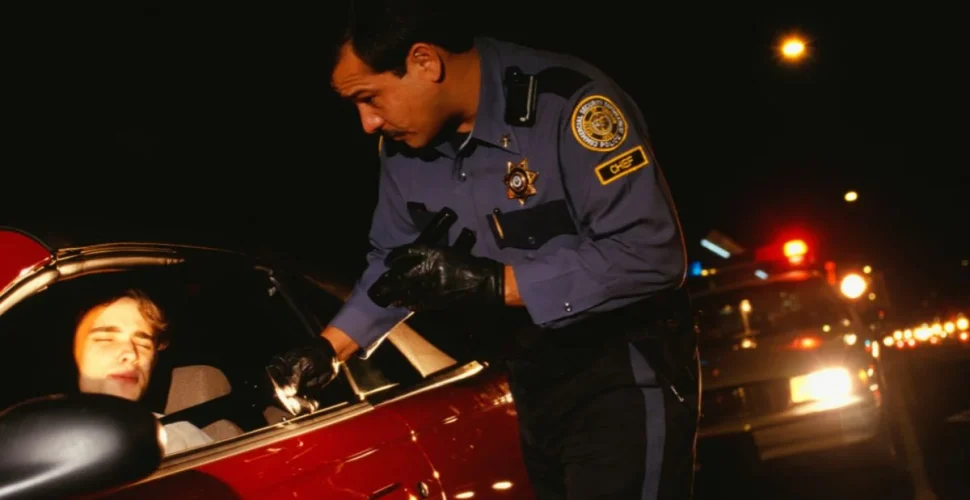|
|
Last Modified on Jul 07, 2025
After a DUI arrest in Nevada County, you face both criminal court proceedings and administrative DMV processes. You have only 10 days to request a DMV hearing to protect your driving privileges. First court appearance is the arraignment, happening within days of arrest where you enter a plea. First-time offenders face fines between $390-$1,000, license suspension, and possible jail time.
Wondering what to expect after a DUI arrest in Nevada County? I get it. This is rough. Have you received any court documents yet?
At The Law Office of Jennifer Granger, we’ve seen hundreds of cases like yours – facing license suspension, possible jail time, and fines that pile up (not to mention the stress it’s causing) with outcomes ranging from reduced charges to dismissals.
These situations ain’t getting better by waiting.
Key Takeaways
- Contacting a DUI attorney immediately after arrest can significantly impact your case outcome
- DUI penalties in Nevada County include license suspension, fines, and possible jail time
- You have only 10 days after arrest to request a DMV hearing to save your driving privileges
- First-time offenders may qualify for diversion programs or alternative sentencing options
- Court proceedings typically involve multiple appearances over several months
Overview of Nevada County DUI Arrests
Listen up folks, because this is IMPORTANT. DUI arrests in Nevada County follow a specific pattern, and knowing what’s coming can make all the difference. A DUI arrest happens when law enforcement believes you’re operating a vehicle under the influence of alcohol or drugs. Nevada County DUI procedures align with California state law but have local nuances that matter.
The moment those flashing lights appear behind you, a complex legal machine starts turning. After a DUI arrest, you’re facing a two-pronged battle: criminal court proceedings AND an administrative DMV process. Both can impact your life dramatically. The stakes? Your freedom, finances, driving privileges, and future opportunities.
According to the California DMV, blood alcohol concentration (BAC) of 0.08% or higher for adult drivers constitutes legal impairment. But remember, you can be arrested with lower levels if impairment is observed.
Booking Procedures and Initial Steps
Ok so you’ve been pulled over. Officer approaches. Asks questions. Conducts field sobriety tests. Maybe a breathalyzer. Arrest follows. Handcuffs. Transport to station. Booking process begins.
Fingerprints. Mugshot. Personal property inventory. Chemical testing (blood or breath). Temporary holding cell. Release protocols vary. Might need bail. Could be released on own recognizance. Depends on factors. Criminal history. Flight risk. Severity of circumstances.
The thing is, those first hours matter tremendously. Your statements? Recorded. Your behavior? Noted. Your cooperation level? Documented. Everything becomes potential evidence. The California Highway Patrol outlines standard procedures followed during DUI stops and arrests, but every situation has its unique elements.
Remember this! You have exactly 10 days from arrest to request a DMV hearing, or your license will be automatically suspended. This administrative process is completely separate from your criminal case. Easy to forget when you’re stressed. Don’t.
Understanding Your Legal Rights and the DUI Legal Process in Nevada County
Now here’s where it gets tricky… many people surrender rights they absolutely should protect during this process. You have the right to remain silent. The right to an attorney. The right to refuse field sobriety tests (though this may have consequences). The right to independent blood testing. The right to a fair trial.
Your rights aren’t just theoretical protections written in some dusty legal document somewhere, they’re practical tools designed to ensure the justice system treats you fairly throughout what can be an overwhelming and frightening experience. They exist specifically because the legal system recognizes the profound impact that criminal proceedings can have on an individual’s life, liberty, and future prospects, which is why it’s absolutely crucial that you understand and assert these rights from the very moment you interact with law enforcement all the way through to the resolution of your case.
You should know that the DUI legal process follows these general stages: arrest, arraignment, pretrial conferences, possible plea bargaining, trial if necessary, and sentencing. The U.S. Department of Justice provides comprehensive information about your constitutional rights during criminal proceedings.
DUI Court Proceedings and What to Expect in Court
Walking into court for the first time? Terrifying. But knowledge helps.
Your first court appearance is the arraignment. This happens within days of arrest. You’ll enter a plea: guilty, not guilty, or no contest. Judge explains charges. Reviews your rights. May discuss bail. Probably assigns future court dates.
What to wear? Business casual minimum. How to act? Respectful. Always. Address judge as “Your Honor.” Stand when speaking unless told otherwise. Turn off your phone!
The pretrial phase involves negotiations between your attorney and prosecutors. Evidence is exchanged. Motions may be filed. Most cases resolve during this phase through plea agreements. If not, your case proceeds to trial.
Potential DUI Penalties and Consequences in Nevada County
Let me be crystal clear about what’s at stake.
First-time DUI offenders in Nevada County typically face:
- Fines between $390-$1,000 (plus penalty assessments that multiply this amount)
- Possible jail time of 48 hours to 6 months
- License suspension for 4-10 months
- Mandatory DUI school (3-9 months)
- Probation (typically 3 years)
- Increased insurance rates (often doubling or tripling)
Repeat offenders? Much worse. Second offense brings mandatory jail time. Third is a potential felony.
According to the California Vehicle Code, penalties increase dramatically for factors like excessive speed, having minors in the vehicle, causing injury, or having very high BAC levels.
Real talk: beyond the court penalties, a DUI affects your life in ways you might not anticipate. Insurance nightmare. Job applications complicated. Professional licenses at risk. Travel restrictions to certain countries. These consequences last YEARS.
Legal Representation: Hiring a DUI Attorney
A qualified DUI attorney understands Nevada County’s specific court procedures, knows the prosecutors, recognizes potential defenses, and can navigate complex technical and scientific evidence. Without professional guidance, you risk missing critical opportunities to minimize penalties or even dismiss charges.
When selecting an attorney, consider:
- Their experience specifically with DUI cases
- Their familiarity with Nevada County courts
- Their communication style (you need someone who explains things clearly)
- Their fee structure (get this in writing)
The State Bar of California offers resources for finding qualified legal representation. Initial consultations are often free and provide valuable insights even if you ultimately choose a different attorney.
Your attorney becomes your voice, your guide, your translator of legalese. Choose wisely.
And if cost is a barrier? Consider public defenders. They’re experienced criminal attorneys. Some payment plans may be available with private attorneys. This is not the time to pinch pennies when your future is on the line.
Good luck, be careful out there, and remember, the decisions you make immediately after a DUI arrest can significantly impact the outcome of your case.
Why Professional Help Matters
This is not a DIY project. The prosecutors handling your case have extensive training and experience in DUI law. You deserve someone equally knowledgeable fighting for your interests. The Nevada County District Attorney’s office prosecutes DUIs aggressively, and having experienced counsel significantly improves your chances of a more favorable outcome.
Frequently Asked Questions (FAQs)
What happens if I refuse a breathalyzer or blood test in Nevada County?
Refusing a breathalyzer isn’t a clever loophole. You’ll face an automatic one-year license suspension on top of the DUI penalties. California has “implied consent” laws, when you got your license, you already agreed to chemical testing if arrested for DUI. The DMV doesn’t care about your reasons for refusing.
How does a DUI arrest affect my driving record and insurance rates in Nevada County?
DUI stays on your driving record for 10 years in California. Insurance? Expect rates to double or triple for at least 3-5 years. You’ll need to file an SR-22 form. Some companies might drop you entirely.
What alternatives to jail time are available for DUI charges in Nevada County?
Work release. House arrest. Community service.
Electronic monitoring. Depends on your case specifics and criminal history. First-time offenders with BAC under 0.15% typically can avoid actual jail time. Nevada County judges often allow alternatives if you’re proactive about attending alcohol education before sentencing. Shows initiative.
Can I have my DUI record expunged, and what is the process?
Yes, but not immediately. You’ll need to complete all terms of probation first, usually 3 years minimum. Then file a petition under Penal Code 1203.4, pay filing fees around $150, attend a hearing. Look, expungement doesn’t erase it completely, still counts for DMV purposes and future DUIs. It mostly helps with employment background checks.
How do DUI alcohol education programs and DUI classes help mitigate penalties?
They’re mandatory, not optional. First offense requires a 3-month program, but showing up voluntarily before court can demonstrate good faith. Some judges reduce fines or community service hours if you’re already enrolled. The programs are… well, they’re pretty basic education about alcohol and its effects on driving, mixed with some group therapy components. Bottom line: complete them on time, get documentation.
How do I get my vehicle back after a DUI arrest in Nevada County?
It’s at an impound lot getting more expensive by the day. You’ll need a release form from the arresting agency, valid ID, proof of ownership, and cash for the towing and storage fees. Someone with a valid license must drive it away. Costs? Usually $250-500 depending on how long it sits there.
Can I drive for work while my license is suspended after a DUI in Nevada County?
You might qualify for a restricted license after 30 days of hard suspension for first offenders. Lets you drive to/from work and DUI school only. Need to install an ignition interlock device, file SR-22 insurance, and pay restriction fees. Second or third offense? Much harder to get any driving privileges.
Here’s the bottom line: time is crucial after a DUI in Nevada County. Don’t wait until the DMV hearing deadline passes (it’s just 10 days!). I’ve seen countless cases won because folks acted quickly to preserve evidence. You’re gonna need specialized representation familiar with Nevada County’s unique court procedures.
Contact The Law Office of Jennifer Granger Today
Contact us today at The Law Office of Jennifer Granger at before making any decisions. Your future depends on these next steps.





